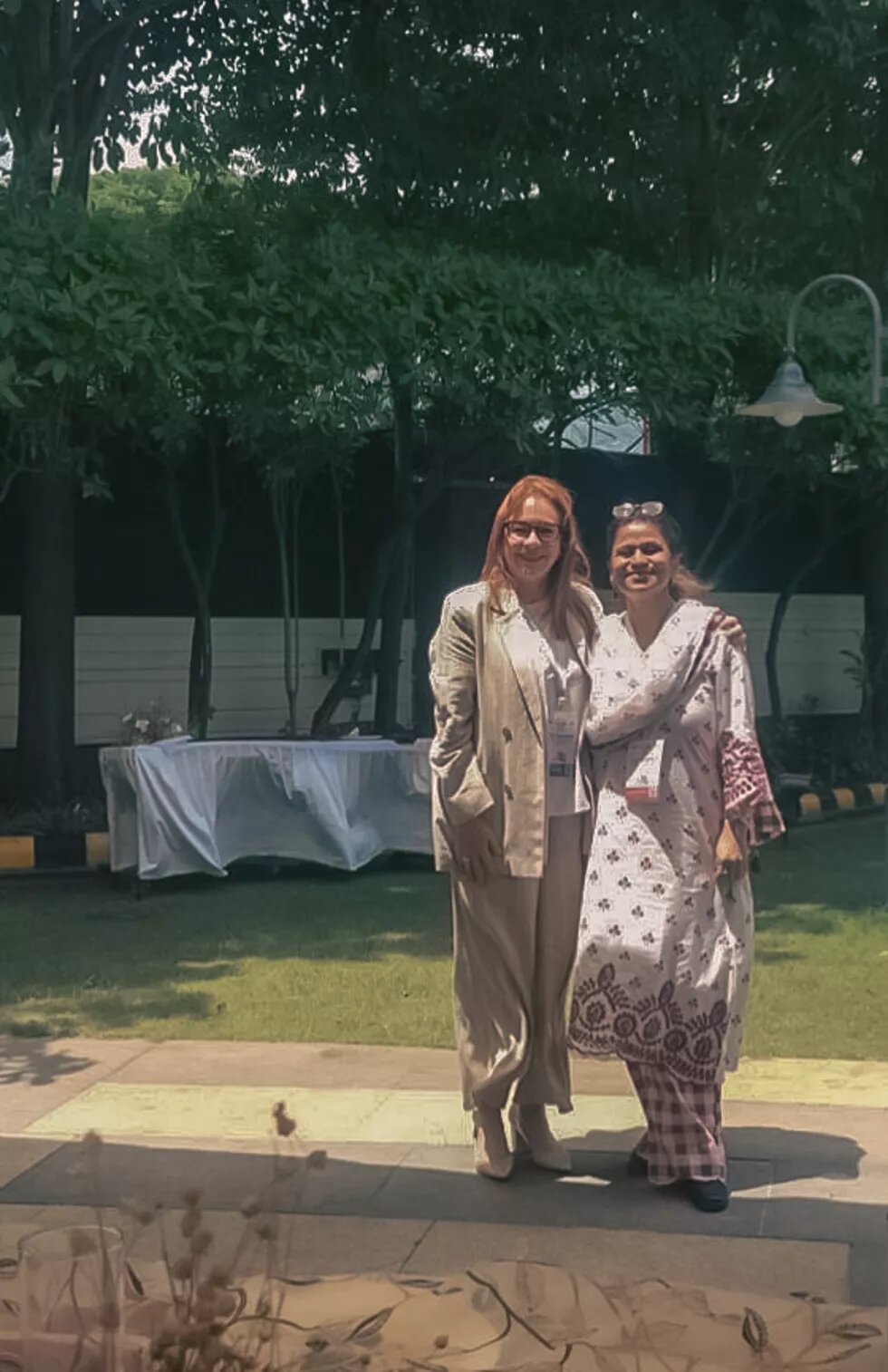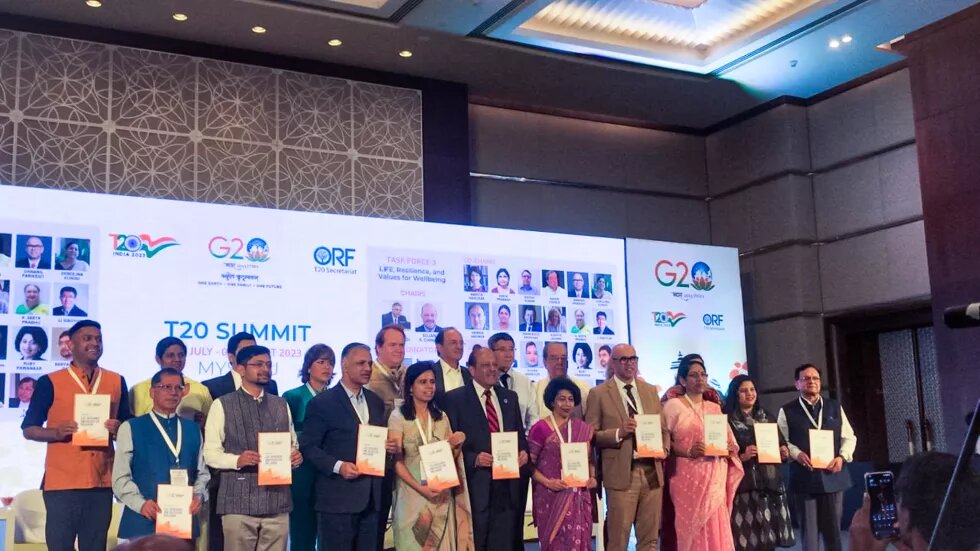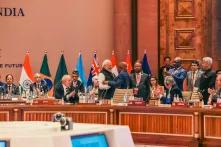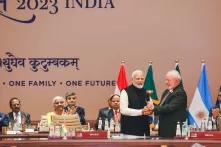
G20’s think tank engagement group in its role has been able to navigate effectively on most issues, especially amplifying the voice of developing nations.

The Summit of the Think Twenty (T20) was held recently in the beautiful city of Mysuru in India, a little over a month ahead of India’s Group of Twenty (G20) Presidency. An eight-month long groundwork laid the foundations, with policy deliberations on G20 priorities spanning cities nationally and internationally. A total of 300 policy briefs and research products were produced by 1,000 authors from over 700 institutions globally.
The T20 is an official engagement group of the G20 and consists of high level global ‘think tankers’ and policy experts from across disciplines and political contexts that jointly communicate and advise to the G20 on the most urgent and impending policy issues confronting humanity. And it is in this role that the T20 has been recognised as an ‘ideas bank’ for the G20, acknowledged as the most important engagement group of the G20 family. Independent from the broader G20 political wrangling, the T20 is in a good position to maneuver through sticky issues with technically and methodologically diverse approaches, while being able to pick on real economic urgencies that may not even be priorities for the G20 host. The recommendations from the T20 shape up as a communique – a key outcome document that holds insights from its Task Forces.
Global South in focus
The T20 communique was released at its Summit on 31 July 2023. Attending the Summit for me was a rewarding intellectual and discursive experience providing insights into the G20 motto of “Vasudhaiva Kutumbakam” – “One Earth, One Family, One Future” – with respect to T20’s translations of it.
As a hopeful green ideologist, working with the Heinrich Boell Stiftung (hbs), a Green worldwide think tank, the crafting of green political visions and strategies to counter the compounding economic, social and environmental global impacts, particularly on economies of the Global South, had to be an urgent call of action. Another compelling priority for the T20 should be to galvanise support for the low and middle income countries. Confronted with disrupted supply chains, the sovereign debt crises, the continuing health crises since the outbreak of COVID-19, their progress on Sustainable Development Goals (SDGs) and climate commitments has been severely compromised. Adding to the mix of challenges are the widening fractures within the G20 sparked by the geopolitics of the Ukraine war.
The polarisation between nations has led to failed meetings of G20 finance ministers and central bankers. The recent meeting of the group’s environmental and climate ministers also fell short of bridging over differences between advanced and developing countries.
In spite of divergences and muted success of other meetings, the T20 in its role has been able to navigate effectively on most issues. A strong focus was “to amplify” the voice of developing nations. The ‘southernisation’ of the G20 – with the baton passing from Indonesia to India, and then to Brazil and South Africa – has been an important turning point in the history of G20. Never has there been in the history of G20, four emerging markets hoisting the Presidency one after the other. Hopes are that these countries with a similar continental/ global standing will be able to integrate into the G20 agendas a shared understanding of development challenge, climate and SDG related questions, be able to leverage funding and additional finance and push for reforms of the global multilateral institutions. It is anticipated that a synchronisation and continuity of agendas across the four South based presidencies would keep the spotlight on developmental issues having positive implementation implications for low and middle income countries.
At the very outset, the Indian Sherpa underlined the need of reforming the international financial architecture. As forecasted by the International Monetary Fund, 80 per cent of the global growth in the next decade will come from developing countries and emerging markets. In this scenario, the expectation is that global institutions will take particular care of these economies. However, the reality is the contrary. The international financial architecture, financial flows and exchange rates had been unfavorable to emerging markets, the Sherpa argued. This essentially means that it will be required to craft new international rules that will foster greater flow of resources to emerging markets and the developing world. This is equally significant for the attainment of SDGs and climate goals, and the ability of these countries to lift vast segments of populations out of poverty.
The Sherpa further lamented that current systems are presently designed to be brutal to the needs of those that require most. For instance, he said, the financial systems allowed the developed world to muster resources at 2 per cent interest rates, India and some countries at 8 per cent, Africa at 16 per cent and Sub-Sahara Africa at 22 per cent. The risk profiles of low income countries inhibit project viability and resource flows, and they end up being caught in a vicious cycle of deprivation. The need is to de-risk these countries and make lending work, not on the “balance sheet of the World Bank but on the balance sheet of the world”.
Priority areas
At least 15 per cent of low-income countries are in debt distress and an additional 45 per cent are at high risk of debt distress. And among emerging economies, about 25 per cent are at high risk. Our (hbs’) close ally María Fernanda Espinosa, co-chair of the Debt Relief for a Green and Inclusive Recovery Project worked with the T20 group and it’s heartening to find that suggestions from the collaborative project found their way into theT20 communique. Such as those on innovative mechanisms: “Debt swaps and debt-for-climate swaps, and automatic climate linked clauses that can help countries address debt sustainability and environmental challenges simultaneously.” Other suggestions included instruments for credit enhancement, blended finance and guarantees to enable private sector mobilisation for green market based resources to flow in. Climate finance for green transitions was cited as a win-win approach leveraging synergies not trade-offs. Arguably climate finance through energy transition partnerships helps “move beyond the technology transfer paradigm to create models of technology co-development”.
The other priority area in clear focus at the T20 Summit was “women-led development”, which is a clear shift from the “development of women” approach. The change in semantics promotes a shift in power dynamics advancing women as agents of change, leading from the front and not alone as passive recipients of development. As was said by one of the speakers at the Summit, “when positions are created, pipelines get created”.
Men and women experts from around the world contributed from positions of experience on multiple themes to highlight women’s agency, entrepreneurship and their leadership roles. Emphasis was made on the attainment of SDGs through greater women-centric programmes, mainstreaming gender in multilateral development cooperation, elimination of the digital gender divide, financial inclusion, decent work opportunities within the care sector and enabling greater economic participation of women with family responsibilities.
One of my current work preoccupations at hbs is with the Feminist Foreign Policy questions. This work backdrop found me weighing in on India as G20 Chair in the context of global Feminist Foreign Policy discourses. India’s desire at the G20 to shape our collective futures with women as key agents of inclusive and sustainable global growth is surely an instance of a Feminist Foreign Policy in practice. The prioritisation of women’s agency and their leadership roles in the realm of international affairs, the adoption of transformative approaches to challenge traditional bastions of institutional power, taking on the mantle on behalf of those bereft of power in international relations (“voice of Global South”) are certainly defining values of any Feminist Foreign Policy. However, on the other end, India is riddled with domestic contradictions that do not match up to the G20’s official rhetoric of diversity and inclusion. At home, freedoms of women and minority populations is vastly censored under a strong patriarchal culture of discrimination. On that account, it’s a long road home for India where it falls woefully short of what is needed.
Among other priority areas that were in focus at the T20, digital public infrastructure (DPI) closely related to the concept of digital public goods, was prominent. India’s conviction demonstrated through its own case, allows for countries to techno-economically leapfrog through innovation and computing to provide for its citizens far more effectively than ever before. In 2021, India became the fifth largest economy and is on track to leapfrog Japan in 2027. Participants deliberated on how to shape up digital commons and to ensure “an open, free, and secure digital future for all”.
Lastly, but not in the least, there is a strong momentum and widespread support to include the African Union as the newest member of the G20 grouping. India has actively lobbied for it and within the paradigms of reformed multilateralism, the inclusion of African Union’s membership of G20 will be a “right step towards a just, fair, more inclusive and representative global architecture and governance”.
It remains to be seen how far T20 policy contributions find a place in the leader’s declaration, but the onus of proof has surely shifted. On their part, the T20 can congratulate themselves on a job well done! India as the G20 host has rallied well for the Global South, leaving an indelible mark on the G20 forum, corralling intractable considerations in favour of developing and low income nations. The continued and sustained focus on these shall remain as India’s most significant legacy under its G20 Presidency.




